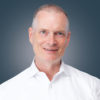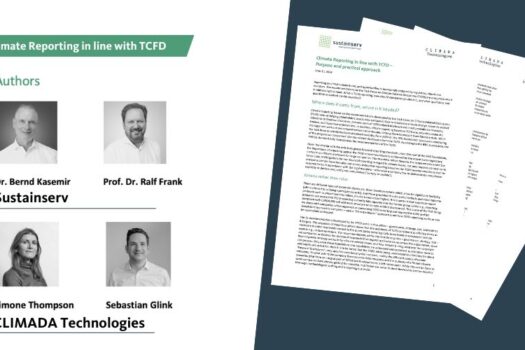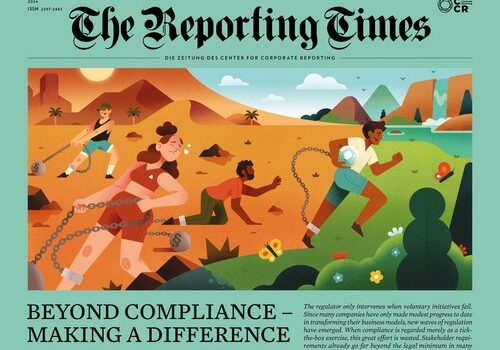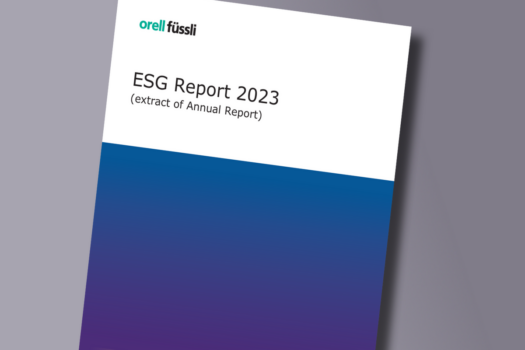Sustainserv was founded 20 years ago on the principle that sustainability generates value for companies, the environment and society. To that end, we stay on the cutting edge of corporate sustainability trends to inform our work and provide timely insights and guidance to our clients. Over the years, we have found our footing as a company that works to inspire meaningful change in the companies we work with. That’s our goal.
Tell us about the start of Sustainserv.
Matthew Gardner: We first met in 2000 as instructors and speakers at a training course in the little Swiss village of Braunwald, in the middle of the Swiss Alps. We all were in academic roles at Harvard, ETH and MIT at the time and we started talking about how to create a business out of the new, growing interest in sustainability, particularly from the corporate sector.
Stephan Lienin: Initially, our vision was to take the latest results of sustainability research from these leading academic institutions and make them available to companies and practitioners. We would be the bridge builders between the leading science of the day and enterprises in need. However, this business model did not work. We had to learn early on that we needed to put our clients in the center of our services.
Bernd Kasemir: That’s because our premise was too simplistic. Business doesn’t just need latest results from science, but bespoke solutions where science and practical management tools come together. However, where our intuition was right from the start is that corporate sustainability was on the edge of taking off. And look at it now, a fast-moving, dynamic, growing space where most of the major companies of the world are acknowledging the role they have to play in protecting the world and its resources, and the importance of being good corporate citizens.
What has changed since then?
Stephan: Starting at a time when sustainability was just at the beginning in the corporate world, we have survived for 20 years in a world of changing markets. We started as a very small but global company and have grown slowly and steadily.
Matthew: When we started this company, we didn’t know how to be consultants. But we’re quick learners. Our job has been to stay on top of a fast-moving, exciting field that’s in a constant state of change. What differentiates us is that we are good translators. That part of our original vision has endured. We help people understand the value of sustainability and the opportunities it provides.
Bernd: When we started, sustainability was completely optional and companies could say whatever they wanted. Because of regulation and stakeholder pressure, the landscape is so different now. It is not a question of whether to become more sustainable, but how to do it in a manner that supports business growth and ultimately value creation.
Stephan: Most importantly, we have a really good team on this journey with us. Over the years we have had a lot of excellent people work with us – they’ve learned from us, and we have certainly learned from them. Our current team of consultants, senior consultants, directors and advisors all bring their skills, their passions and their commitment to this company. We’d be nothing without them. They are why we are successful.
Matthew: To respond to the growth in the sustainability sector and the evolving client needs, we’ve continuously adapted our service portfolio and recently expanded our presence by opening new offices in Munich, Germany and Nashville, Tennessee.
Bernd: We’re fortunate in that we’ve had the opportunity to work with some of the largest, most sophisticated companies in the world. They present exciting questions and challenges regarding their strategy, performance and reporting – it really keeps us on our toes and looking forward for how we can help them drive their ESG efforts in the right direction.
How do you all complement each other, and how has this contributed to Sustainserv’s success?
Bernd: Aside from the fact that the three of us are chemists, we are pretty different temperamentally. Our different personalities sometimes make decision-making a bit slow. But it also creates a checks-and-balances system that keeps us from making rash decisions.
Matthew: We also have complementary skill sets – a good balance of big picture and granular perspectives. The three of us are a strong foundation for who we are as a company.
Stephan: This also is true of our team. We have diverse backgrounds and personalities – much like the complex and multi-faceted nature of sustainability.
How do your outside activities help you in the daily business?
Matthew: Our outside activities enhance our ability to engage with clients. For me, teaching at Harvard is a great way to keep an eye on the big picture and understand how people newly interested in sustainability perceive this subject. I also serve on the board of an orphanage project in Tanzania, where I am able to directly apply what I have learned from Sustainserv and knowledge of sustainability more broadly.
Bernd: One of my hobbies is dancing tango, which is very similar to how we partner with clients. On the dance floor and at Sustainserv, it’s important to be very connected to your partner and perfect the art of listening. Tango is a dance in which you don’t know what’s going to happen next, you have to respond instantly to what your partner does. And that’s how I see a good client engagement. You shouldn’t assume what the client will do next or tell them what to do but be ready to help them find their next best move.
Stephan: I do improvisational theater, where you learn to go on stage when you have little to nothing to go on. There have been so many instances in our business where we’ve had to improvise and find a solution with just a few moments to spare. I am also on the board of the NGO Kamboo Project, which implements social projects in Cambodia. There I learned that you can make a difference even with limited but targeted resources.
“Cultivating a forward-looking perspective on issue management and reporting is growing in importance. Companies are adopting a more long-term outlook on sustainability risks and impacts, expanding their need for scenario-based, forward-looking analyses.”
What does the future hold for corporate sustainability?
Bernd: I see increases in both ambition and regulation. Sustainable finance guidelines in Europe are moving things along much more quickly than predicted. In addition, “framework fatigue” is driving consolidation, such as the merger between the IIRC and SASB, which represents the coming together of European and American sustainability perspectives.
Stephan: I expect and hope that sustainability will become the new normal because it’s pulled into ordinary business practices and is no longer an outlier worthy of a special name. In particular, new generations of managers will bring that mindset into their companies.
Matthew: Companies are increasingly looking to transition from high-level commitments to concrete implementation steps and integrating sustainability into the daily business processes. They used to get a gold star for taking the tiniest step toward sustainability but are now having to work a lot harder to set themselves apart. The industry is becoming more sophisticated, and we’re committed to moving fast, keeping up, and sometimes even leading the way.
This interview was published in 2021 in the context of our 2020 Integrated Sustainability Report 2020.
Get in touch. We are happy to tell you more about it.







